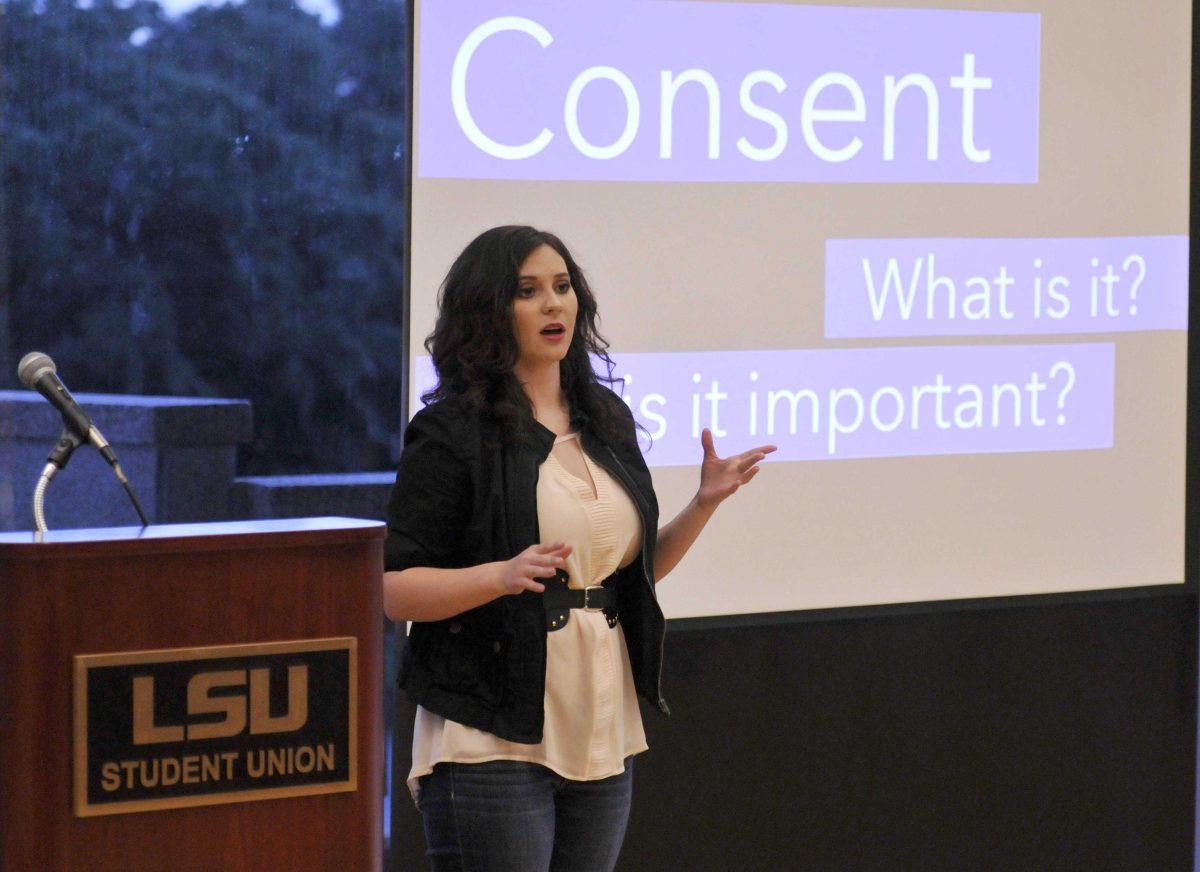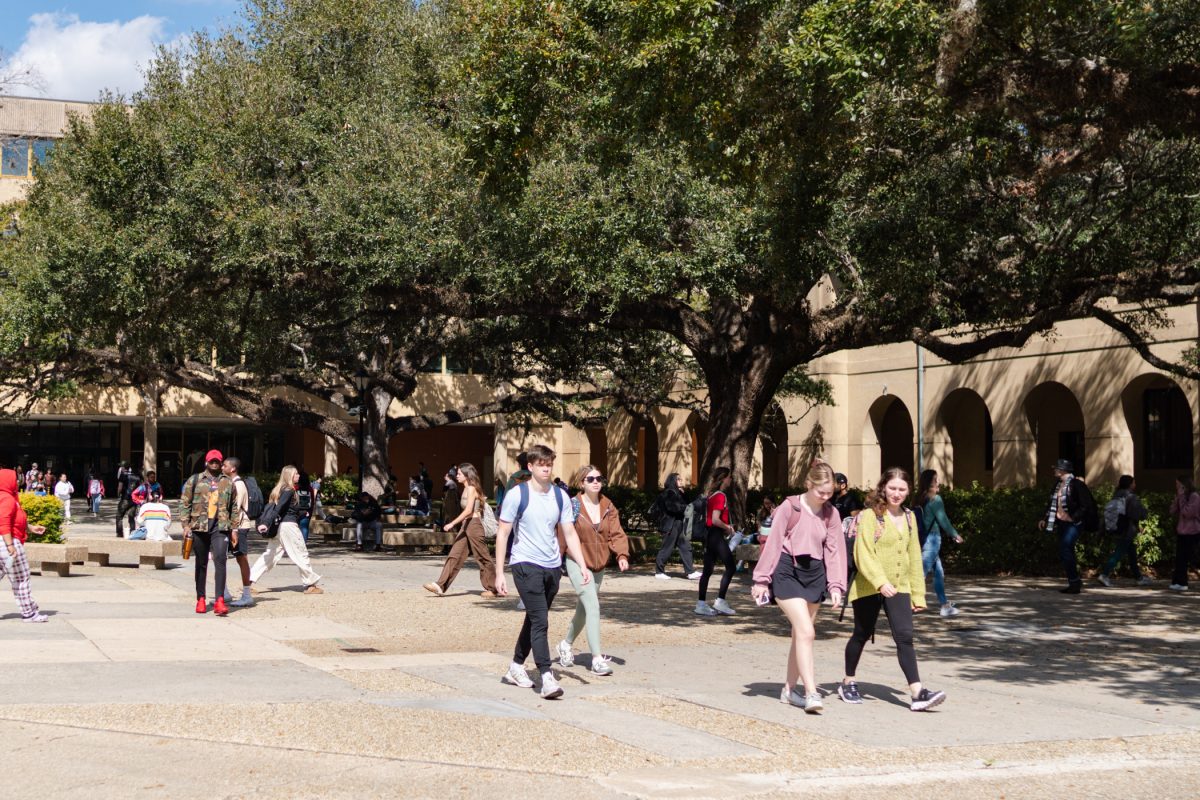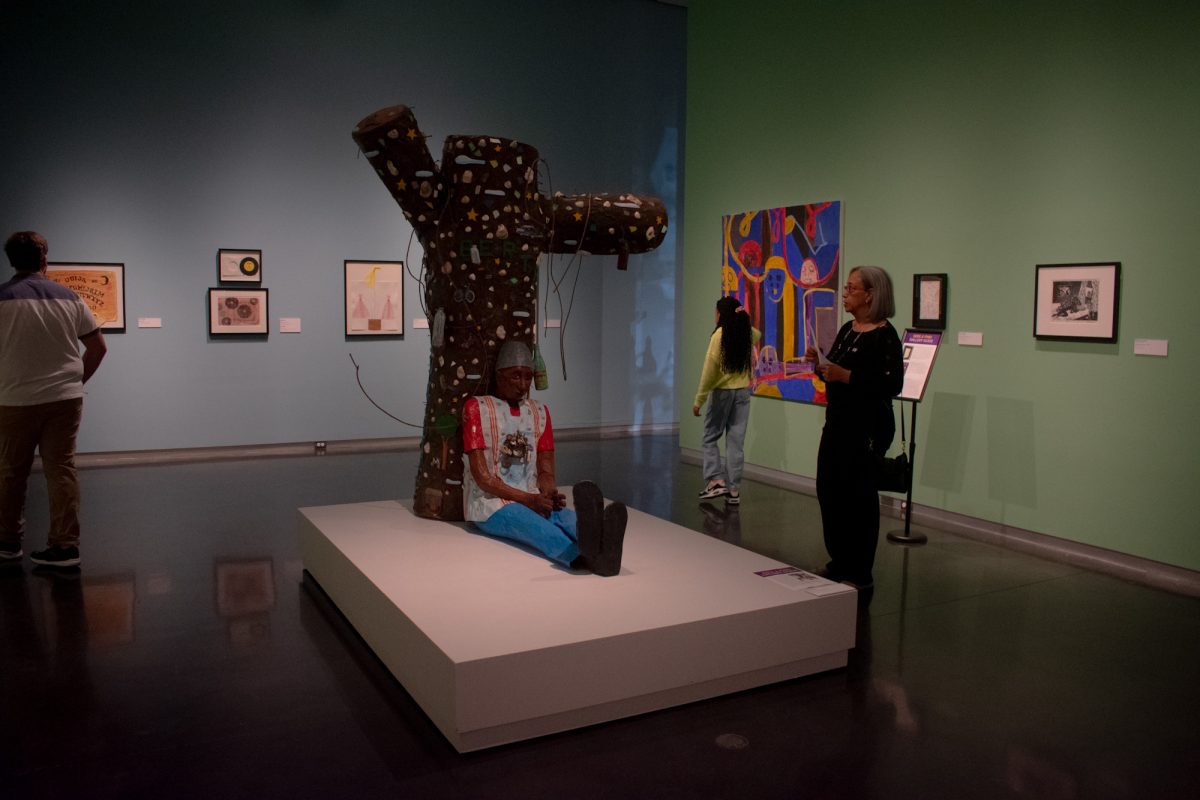Differences between consent and coercion were the focus of the “1000 No’s and One Yes” event Wednesday night in the Student Union.
Communication studies sophomore Peyton Cacioppo was inspired to create the event when she realized most of the women in her life had been affected by sexual assault and.
The goal of the event was to have an open conversation with students about consent, communication and what sex is.
“No one talked to me about [sexual assault] and what coercion is or what to do,” Cacioppo said. “No one should have to figure it out on their own.”
Consent is an active and enthusiastic “yes” that is both physical and verbal, Cacioppo said. Otherwise, the act is sexual assault, and you aren’t respecting your partner or yourself.
The most important thing people should walk away with from this event is knowledge — especially about the free resources that are available on the University’s campus and in the Baton Rouge community, such as the Student Health Center’s Lighthouse, the Sexual Trauma Awareness and Response Center, the Baton Rouge Crisis Intervention Center and the Rape Abuse Incest National Network, Cacioppo said.
Sexual assault is an issue in our community and all around the world, and the first step in changing that is to talk about it and give people the skills to have conversations with their partner, according to STAR Director of Education and Outreach Rebecca Marchiafava.
It is important to have open communication because 80 percent of people who are a victim of sexual violence knew their attacker, Marchiafava said.
Students who attended the program responded positively.
“It doesn’t matter who you are, what gender you are or where you are from,” said mass communication sophomore Jonathan Brown. “Everybody can be assaulted.”
Psychology sophomore Nichole Fasilier said events like these are important because it lets students know that if they are uncomfortable with what they are doing then they have the right to just say no.
Consent, communication discussed at ‘1000 No’s’ event
October 3, 2013
Peyton Cacioppo gives a presentation explaining sexual consent at 1000 Nos and 1 Yes on Wednesday evening, Oct. 2, 2013 in the Atchafalaya Room in the LSU Union.







